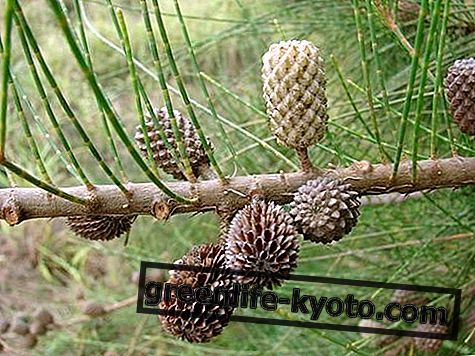
Turmeric is an effective natural remedy for dyspepsia, liver and biliary tract problems, cognitive impairment and rheumatic pain, but why is it preferable to take turmeric with black pepper ? Let's see it together.
What is turmeric
Turmeric is the rhizome of Curcuma longa L., a perennial herb of the Zingiberaceae family native to southern Asia and now cultivated in different areas, particularly in India.
The turmeric plant has large elliptical leaves and produces yellow flowers gathered in spikes. In herbal medicine and turmeric phytotherapy the rhizome is used when the aerial part has dried up. Tuberized rhizomes are deprived of roots, cooked in water and dried.
Turmeric rhizome has an aromatic smell and a slightly bitter taste. Turmeric is yellow due to the presence of substances called curcuminoids, whose quantity varies according to the cultivar and can reach 8%.
Among the curcuminoids, the most represented is curcumin, a molecule that has shown anti-inflammatory activity.
The turmeric rhizome also contains essential oil, monosaccharides and polysaccharides: in addition to a considerable amount of starch, in the turmeric there are arabino-galactans and fructose.
Turmeric is also used in the food industry as a dye because it has no toxicity and is stable to changes in temperature and pH .
Turmeric is also the main ingredient of curry, a mixture of spices that also includes coriander, ginger, pepper, nutmeg and chilli.
Properties of turmeric
Turmeric has been extensively studied and boasts numerous health properties. In particular, the turmeric rhizome has shown anti-inflammatory, antioxidant, cholagogue and choleretic properties and a protective action on mild cognitive impairment .
Turmeric is therefore effective in treating digestive, hepatic and biliary tract disorders because it increases the production and flow of bile and has a carminative and antispastic action.
The anti-inflammatory and antioxidant properties of turmeric are instead given by its ability to inhibit factors involved in inflammation and increase the production of steroids.
Thanks to its properties, turmeric is used in the treatment of dyspepsia and flatulence, disorders of the liver and biliary tract and rheumatic pains. Other possible uses of turmeric concern mild cognitive impairment and depression.
Turmeric is a safe natural remedy but should not be taken in case of obstruction of the biliary tract and, at high doses, can cause ulcers .
Why take turmeric and black pepper
Turmeric is an extraordinary natural remedy since curcumin is a molecule that has many targets in our body. Curcumin, however, is characterized by molecular instability, is poorly soluble in water, is rapidly conjugated in the liver and excreted by the bile in the form of conjugates and is poorly absorbed in the intestine: these factors negatively affect the bioavailability of curcumin.
To increase the bioavailability of curcumin, turmeric-based products are often associated with black pepper because it has been shown that piperine interferes with conjugation of curcumin at the level of the liver, thereby improving the bioavailability of this molecule.
Often, therefore, we recommend taking turmeric together with black pepper and for some time supplements are available that contain both turmeric and black pepper extracts, so as to have a more bioavailable and consequently more effective product.












